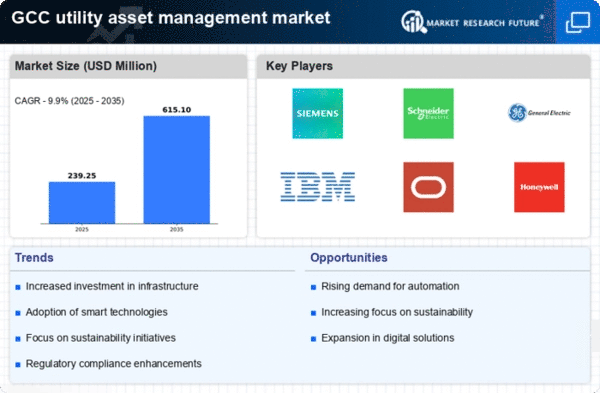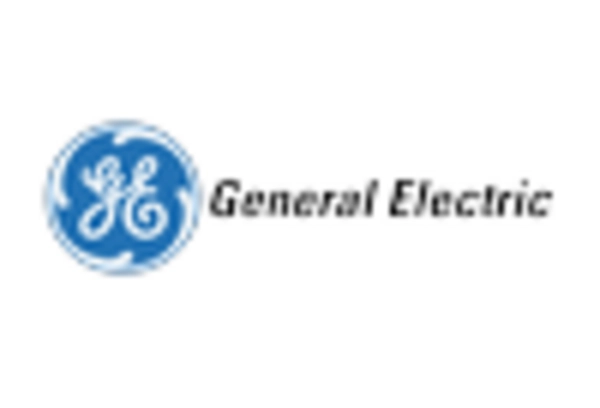Growing Demand for Renewable Energy Sources
The transition towards renewable energy sources is significantly influencing the utility asset-management market. In the GCC, governments are investing heavily in solar and wind energy projects, aiming to diversify their energy mix. This shift is expected to lead to an increase in the management of renewable assets, which could account for over 30% of the total energy generation by 2030. Consequently, utility companies are compelled to adopt sophisticated asset management strategies to effectively integrate these renewable sources into their existing infrastructure. This trend not only enhances sustainability but also drives the demand for innovative asset management solutions.
Technological Advancements in Asset Management
The utility asset-management market is experiencing a notable shift due to rapid technological advancements. Innovations such as IoT, AI, and big data analytics are enhancing operational efficiency and decision-making processes. In the GCC, the integration of these technologies is projected to increase asset reliability and reduce maintenance costs by up to 20%. Furthermore, the adoption of smart grid technologies is expected to facilitate real-time monitoring and management of utility assets, thereby improving service delivery. As utilities strive to optimize their asset portfolios, the demand for advanced asset management solutions is likely to grow, indicating a robust market trajectory in the region.
Regulatory Frameworks and Compliance Requirements
The utility asset-management market is significantly shaped by evolving regulatory frameworks and compliance requirements. In the GCC, regulatory bodies are implementing stricter guidelines to ensure the sustainability and reliability of utility services. Compliance with these regulations necessitates the adoption of robust asset management practices. Utilities must invest in systems that facilitate adherence to these standards, which may involve substantial financial outlays. As a result, the demand for comprehensive asset management solutions is likely to increase, as utilities seek to navigate the complexities of regulatory compliance while maintaining operational excellence.
Focus on Operational Efficiency and Cost Reduction
In the utility asset-management market, the emphasis on operational efficiency and cost reduction is increasingly prominent. Utilities in the GCC are under pressure to optimize their operations while minimizing costs. This has led to the adoption of advanced asset management practices that focus on predictive maintenance and lifecycle management. By implementing these strategies, utilities can potentially reduce operational costs by up to 15%. The drive for efficiency not only enhances profitability but also ensures that utilities can deliver reliable services to consumers, thereby reinforcing the importance of effective asset management.
Increased Investment in Infrastructure Development
Infrastructure development remains a critical driver for the utility asset-management market. The GCC countries are witnessing substantial investments in utility infrastructure, with projected spending exceeding $200 billion over the next decade. This investment is primarily aimed at upgrading aging assets and expanding capacity to meet growing demand. As utilities modernize their infrastructure, the need for effective asset management practices becomes paramount. Enhanced asset management strategies can lead to improved operational efficiency and reduced downtime, thereby supporting the overall growth of the utility asset-management market in the region.
















